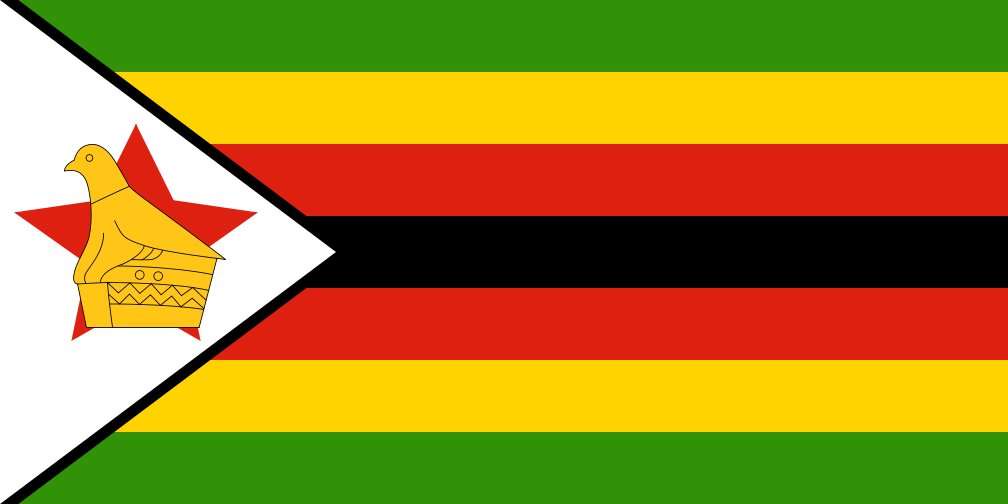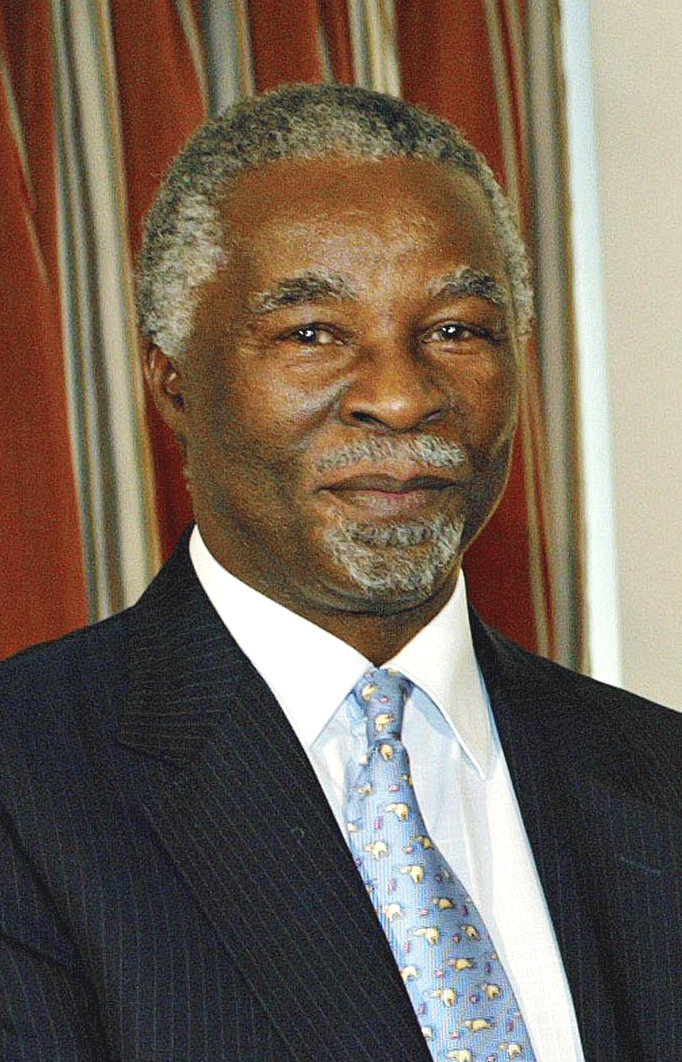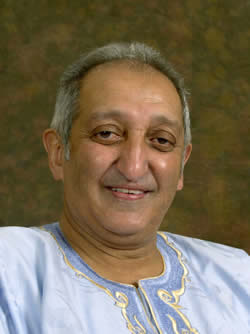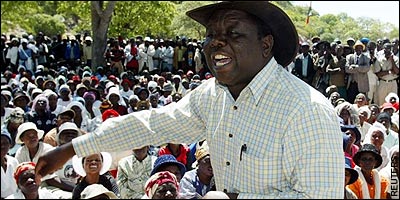Zimbabwe - Thabo Mbeki and Aziz Pahad

Since the election itself, we have watched, in slow motion, the frantic backpedalling of ZanuPF to steal the elections after the fact.
We have all watched Zimbabwe’s slide from prosperous neighbour to failed state in the past 8 years. There was much wringing of hands by western countries - watching another African basket case grow from what was a functioning economy with educated populous.
Granted - there was a lot of unfinished business from independence -particularly about transfer of ownership of land to black Zimbabweans. There were a few attempts to deal with it, but it became a political football, and a very convenient scapegoat for ZanuPF to rally the peasant population when it was convenient to do so.
Zimbabwe did not loom large enough on the world agenda for it to be politically prudent to intervene. Targeted sanctions were put in place, against an increasingly wider palace grouping, starting with Robert Mugabe and growing down.

level contacts were made from Germany, Britain, USA, EU to countries that were felt could make a difference - Zimbabwe’s neighbours -and in particular Thabo Mbeki. As president of South Africa, her southern neighbour and haven for Zimbabwean economic refugees, electricity supplier -surely he could talk to uncle Bob.
When talking about South African foreign policy, there is always another name that comes to mind - Aziz Pahad. An ANC activist during the Apartheid years, mostly from outside the country, he has struggle credentials. In 1985, he was elected a National Executive Committee member of the ANC – a position he still holds. He was appointed deputy head of the ANC Department of International Affairs in 1992, and in the 1994 elections won a seat in Parliament and was appointed Deputy Minister of Foreign Affairs in the government of President Nelson Mandela, a position he also still holds. Foreign Ministers come and go, but they all consult the veteran of the department - their loyal deputy.
Thabo Mbeki engaged in his ‘quiet diplomacy’ when dealing with his northern neighbour. Others shouted from the rooftops - where had that got them ? Only Bob’s deaf ear. South Africa - indebted to Mugabe as the leader of the Frontline States during Apartheid, would never invade Zimbabwe, so regular private discussions were the order of the day. But we feel these were mostly an opportunity for uncle Bob to tell a man 18 years his junior old war stories about defeating the British against all odds. What could this young man, preoccupied with his books during the years of South Africa’s liberation, tell an old war horse about the world ?

Repeatedly we had assurances from Thabo that all was well with Zimbabwean democracy. The people of Zimbabwe, we were told, would sort out their own problems - it was not for South Africa to intervene.
The 2002 Presidential elections came. Observers from a Norwegian mission and the local Zimbabwean Election Support Network (ZESN) issued condemnations of the election, saying it was held in a climate of fear. But observers from Nigeria and South Africa endorsed the elections, while the Organisation of African Unity (OAU) team announced that “in general the elections were transparent, credible, free and fair.”
The 2005 parliamentary elections came, with a SADC observer mission led by Phumzile Mlambo-Ngcuka. They pronounced a clean bill of health. Many others disagreed.
The election on 29 March 2008 came. Ground rules had changed -ballots were to be counted at the polling stations, and the results posted on the door for all to see. The results were passed on to the ZEC for collation centrally.
The ZEC were very slow releasing the results. It took one week to establish that the opposition MDC had beaten ZanuPF in the parliamentary elections, and a further few days to establish that the Senate was evenly divided. The ZEC released no results from the presidential elections. None. 17 days later not a single result (each of which is posted plain as day of the poll station door). There is no explanation from the ZEC.
The MDC, after many diplomatic protestations, launched a legal bid 7 days after the election to have the results released. It took one day to reach the court through police blockades, another day to establish that the court had jurisdiction, and another day to decide that it was indeed urgent. A day later the judge heard submissions, and announced that 5 days later, on Monday, the decision would be announced. Amongst the defence submissions was a claim that it would be ‘dangerous’ to release the results. I hope that did not intimidate the judge.
Zambian President Levy Mwanawasa had in the meantime convened a single-issue, emergency summit on the Zimbabwean situation exacerbated by the no-show of the presidential results, to be held 12 April.
Leaders of the 14 country grouping all arrived in Lusaka on Saturday. Mugabe had decided not to come. Thabo Mbeki visited him in Harare on his way through to the summit. After the meeting in Harare, Mbeki emphasised there was no crisis, his quiet diplomacy holding firm against the chorus of questions.

The SADC met in Lusaka, for 13hours. SADC deliberations are committed, like the British Commonwealth, to consensus. It is a noble line to hold, particularly on contentious issues. 13 hours is a long time for that many leaders to be holed up in one meeting room. I can only presume that, as the economic powerhouse of the region, Thabo Mbeki’s pleas for patience and judicial process swayed the group. There must have been many regional doubts though for the meeting to have lasted that long.
The statement at the close was mild, exhorting quick release of the results, scrupulous adherence to the law, and, in case of a runoff, elections to be held in a secure environment. The same day, the Information Minister Sikhoanyiso Ndlovu said the Zimbabwean army will not intervene against civilians and soldiers will remain in their barracks. One must presume this was at the prompting of the SADC.
The judge spoke on Monday. Case dismissed, with costs.
Meanwhile, the ZEC said that all results, including the presidential results would be recounted in 23 constituencies. The MDC protested that this was illegal - protests had not been lodged within 48 hours as stipulated by law, and the recount was illegal before the results of the first count had been announced. The ballot boxes in question had been held out of sight of all interested parties for 2 weeks - it was riggable, and against the spirit of counting and posting the results immediately.

We now have a vacuum until next Saturday - the date the runoff (if there is one) should be held, according to the law. Without knowledge of the election, election observers cannot be present, giving a free hand for ZanuPF forces to conduct a fresh round of intimidation.
The SADC can speak with authority. They have singularly failed to stop the theft of this election. The buck passes upstairs - to the AU, and after them,the UN.
I blame Thabo Mbeki - fair and square. I have said so before, and i say it again. the man is unable to lead, and has to be pointed down the path. His own descent from power will be gracious, as opposed to Mugabe’s, but his legacy will be remembered as failing on the AIDS question, and failing on the Zimbabwe question. The ANC needs to find a (much) better way of choosing its leaders.
Thabo, lead. Like your predecessor, who pointed the way, and the people followed.